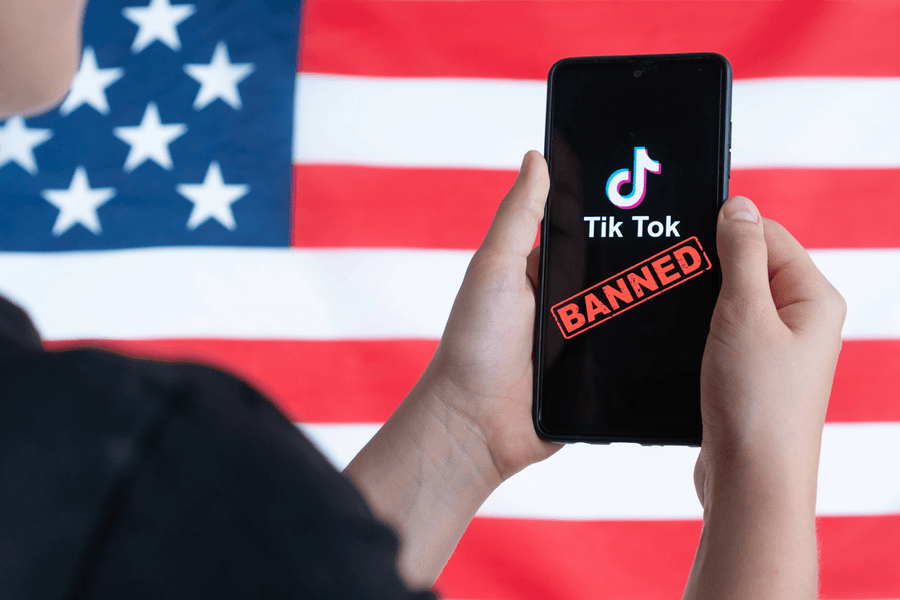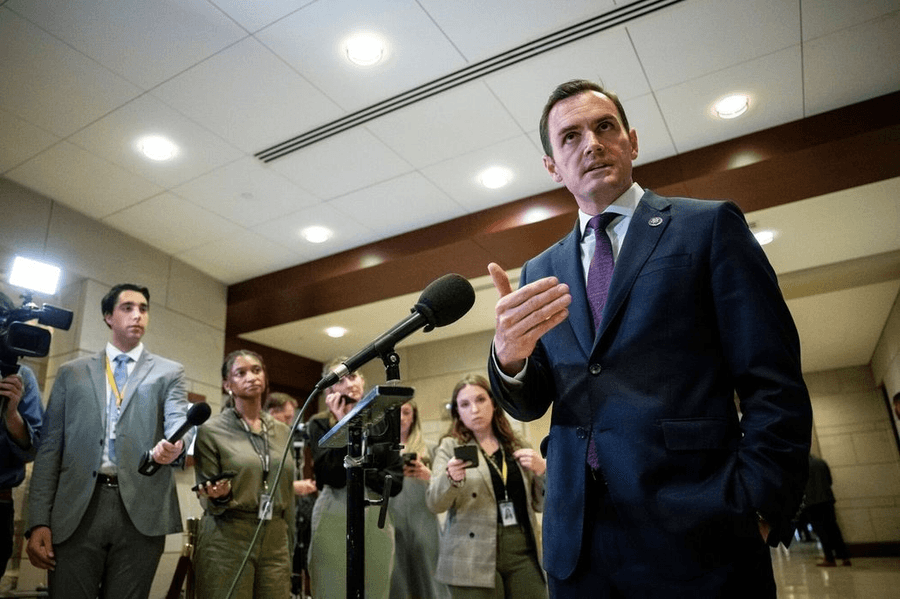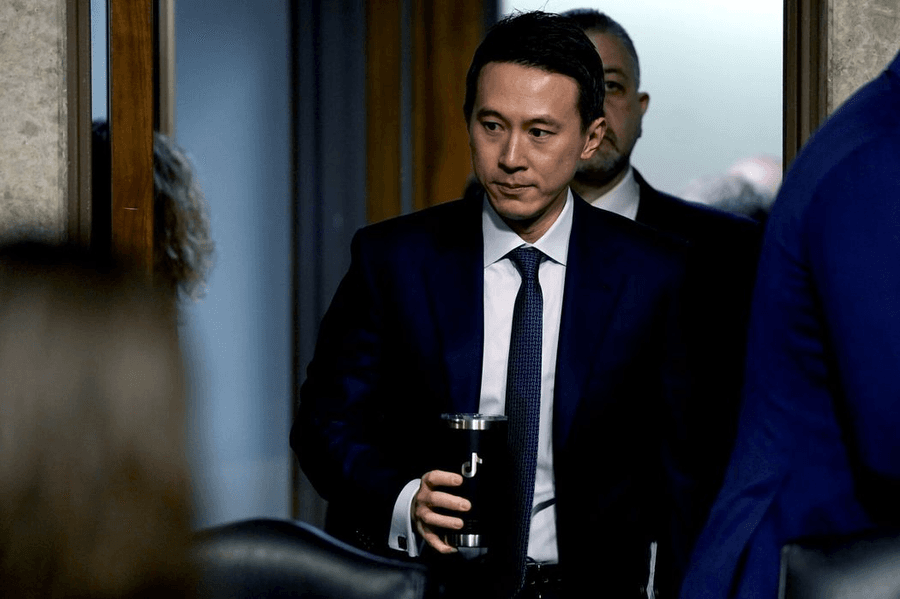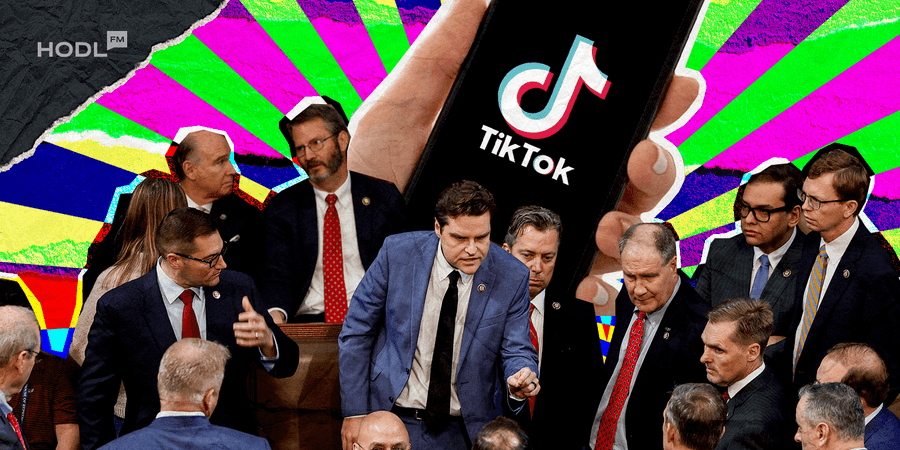With an overwhelming majority, the House of Representatives voted to approve the bill on Wednesday, which will either ban TikTok from operating in the US or force it to sell, setting the stage for a showdown in the Senate, where lawmakers signal a more cautious approach to legislation.
The short-video app has come under scrutiny for how its content recommendation algorithm operates, from sensitive issues like teenage depression to global debates like the Israel-Hamas conflict. US officials claim that Chinese ownership of TikTok potentially gives Beijing access to gather data on Americans and influence public opinion, fueling years of continuous efforts to rein in the app.
The House legislation demands that the parent company ByteDance divorce TikTok, or else the platform will face banishment from app stores and web hosting services in the US. ByteDance will have around six months from the bill’s passage to comply with the demands.

Related: The Richest AI Billionaires
“TikTok cannot continue to operate in the United States under its current ownership structure,” quipped Representative Mike Gallagher (Republican, Wisconsin), who co-authored the bill with the White House, alongside Rep. Raja Krishnamoorthi (Democrat, Illinois).

Now the bill heads its way to the Senate, where many lawmakers share the concerns of their House colleagues. But the fate of this measure is more uncertain due to questions about potential changes in the bill’s wording, uncertainty surrounding leadership stances, and the Senate’s internal dynamics. President Biden has promised to sign the bill if it lands on his desk, and the White House has expressed hope on Wednesday that the Senate will bust a move swiftly.
Opponents of the Law
Lawmakers are trying to balance national security concerns and free speech issues as they head toward a Senate showdown. Opponents of the bill – from left-wing firebrand Alexandria Ocasio-Cortez (Democrat, New York) to right-wing firecracker Marjorie Taylor Greene (Republican, Georgia) – have voiced concerns over the rushed nature of the legislation, expressing reservations about bills that could curtail the information Americans can access.
Creative types, artists, content creators, and businesses in my district will find themselves caught in the crossfire of this bill and deserve better than the federal government’s heavy-handed intervention as a substitute for a thoughtful solution to a complex national security issue.
Representative Sydney Kamlager-Dove (D., California)
Lawmakers and administration representatives have expressed concern that ByteDance might hand over U.S. user data to the Chinese government. The company has stated it hasn’t received such requests and wouldn’t comply if it did. Critics of the TikTok bill argue that the platform has taken steps to address ownership concerns, including storing all user data in the U.S. cloud with Oracle rather than abroad, and that worries about the service are blown out of proportion.
It’s a ban built on zero proof. We hope the Senate will fact-check, listen to their constituents, and recognize the impact on businesses and users alike.
TikTok Doesn’t Give Up
To fight a potential ban, TikTok has invested significant sums in lobbying activities within Washington over the past few years. According to OpenSecrets, a non-partisan platform tracking money in politics, and an analysis of lobbying disclosure forms conducted by The Wall Street Journal, since 2019 ByteDance has roughly dished out $21.3 million on federal lobbying.
The company might also take the law to court, arguing it violates the First Amendment. After Montana banned the app last year, a federal judge blocked the state measure, citing concerns over free speech.
However, TikTok was stunned by the lightning-fast pace at which the House of Representatives pushed the law. Just last week, the bill sailed through the House committee with a whopping 50 votes in favor and 0 against.
Senate aides said that the mighty display of support in the House is cranking up the heat on the Senate, pushing for action. According to one aide, at least some senators have declined meetings with TikTok’s CEO, Shou Zi Chew, who’s been in Washington this week.

In a last-ditch effort to slow down the bipartisan steamroller of this measure, TikTok’s US operations honchos have decided to roll out a pop-up on some TikTok users’ phones, urging them to reach out to their representatives. These efforts could have awkward consequences, as some lawmakers have pointed out, highlighting TikTok’s ability to shape public opinion.
More Info:
- AI Chatbots Revolt Against Upcoming US Elections
- Where Crypto Can Grow – Digital Asset Regulations Around the World
- Exploring the Boundaries: 3D Adult Content vs. Apple Vision Pro
ByteDance has also brought on board longtime Trump advisor David Urban, while former White House official Kellyanne Conway is rallying against the TikTok ban on behalf of the Growth Club, a conservative group pushing back against shuttering the video app. Conway has warned Republicans that TikTok has users in every district, and a ban could elicit a negative response from voters, according to someone familiar with the discussions. This person added that he also spoke with Trump about the complexities of clamping down on TikTok.
Disclaimer: All materials on this site are for informational purposes only. None of the material should be interpreted as investment advice. Please note that despite the nature of much of the material created and hosted on this website, HODL FM is not a financial reference resource and the opinions of authors and other contributors are their own and should not be taken as financial advice. If you require advice of this sort, HODL FM strongly recommends contacting a qualified industry professional.






